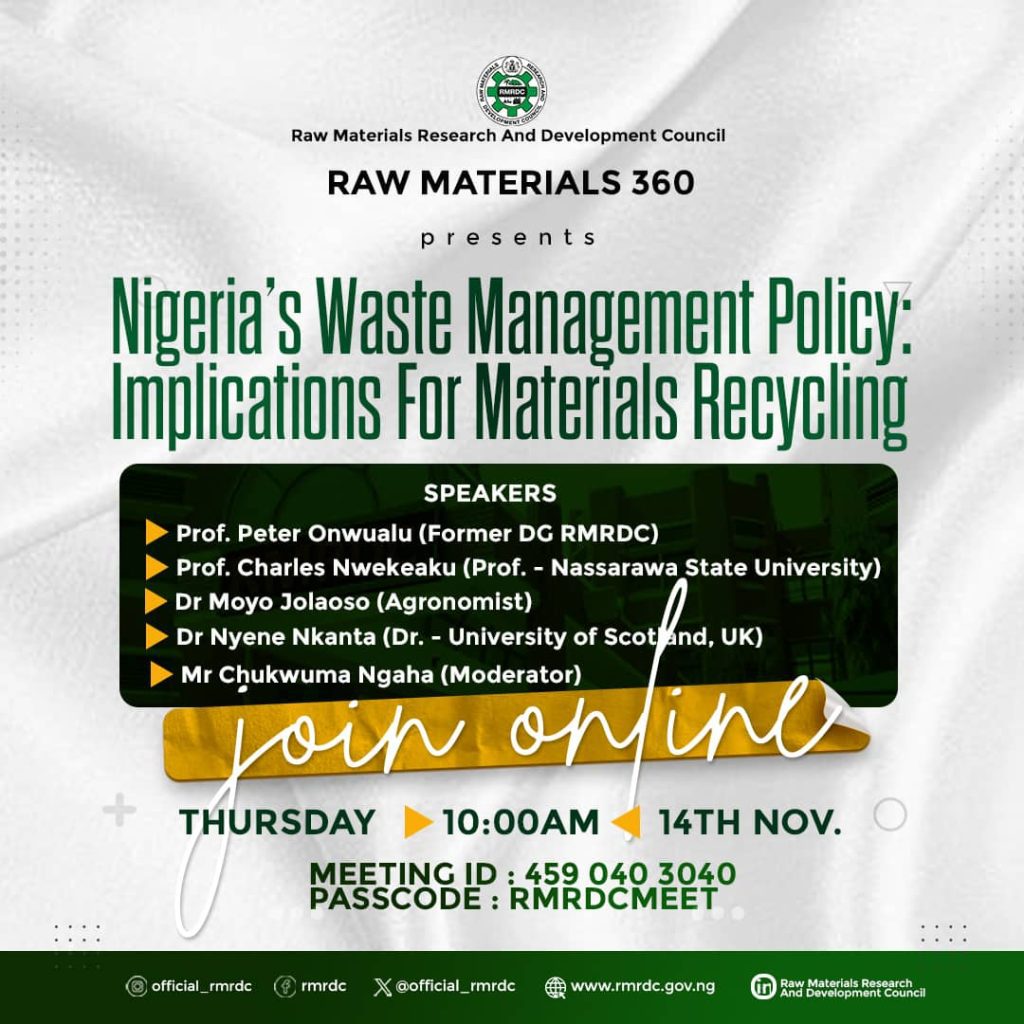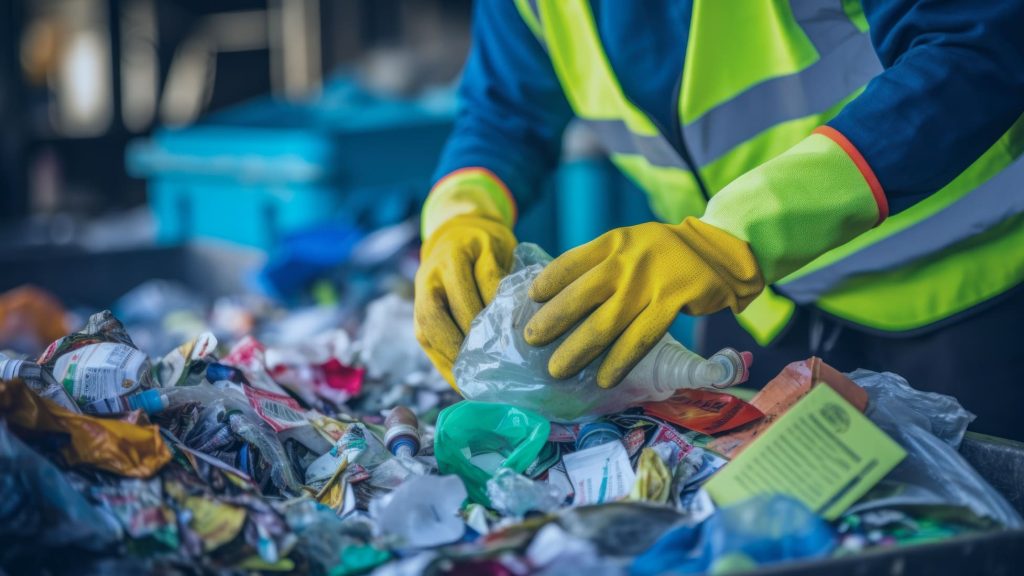Experts have called for the adoption of entrepreneurial approach in developing and implementing good waste management policies, saying everybody has a role to play, but with more action coming from the private sector.
They equally advocated for public awareness campaign and behavioural change by promoting the culture of responsibility, saying government should consistently enforce laws that have to do with waste management.
Speaking virtually at a discourse organised by the Raw Materials Research and Development Council (Raw Materials 360), titled: ‘Nigeria’s Waste Management Policy: Implications for Materials Recycling’, a former Director-General of RMRDC, Prof. Azikiwe Onwualu, stated that government needs to look at waste management from business perspective of problem in terms of waste management, adding that what is regarded as waste is actually raw materials for industries.
“There is nothing really we can call waste because they are raw materials for industry and people are looking for it”.
Onwualu emphasised that the country has people that are employed to pack waste, but they lack proper monitoring, adding that the nation needs to employ circular economy with entrepreneurial approach that would provide support for the Small and Medium-sized Enterprises (SMEs).

“Sourcing of waste should be from the source to know, which one a particular industry would be needing to process their goods”, he added. Dr. Nyene Nkata, from the University of Scotland, United Kingdom, explained that waste management encompasses all activities in processing waste from inception to the final disposal, adding that there is a lot to be done when it comes to waste management in Nigeria.
She reiterated that the country was trying in waste management, but some states are still struggling on how to collect waste and manage them, adding that the people are not well informed when it comes to waste separation. “Incineration is not the best solution for waste disposal. Waste should be separated”, she said.

Dr. Nkata, however, called for more sensitisation and awareness on waste separation, saying that with proper awareness of recycling, removing valuable materials for re-use, the problem would be solved. She noted that “we need more education when it comes to waste management.
Converting waste to wealth is an eye-opener and important topic of discourse”. She called for better funding and technological know-how as well as behavioural change to properly dispose and manage waste, while urging the government to encourage entrepreneurs to go into waste management and consistently enforce waste management policies.
On his part, an agronomist, Dr. Moyosore Jolaoso, noted that Nigerians seem to have poor knowledge when it comes to sorting, saying people should know that there are specialised places to dispose their waste.
He revealed that some states have gone far in the collection and recycling of waste, saying Lagos State should be used as a blueprint, noting that the country can do better, if there are companies and entrepreneurs that would be encouraged to venture into the business. “Public Private Partnership should be encouraged for synergy among the people to make sure things are done properly and that universities and research institutions should come up with ways on how to manage and use waste properly”.
In her contribution, Mrs. Aisha Ishaq stressed that Nigerians have the knowledge, adding that the problem is caused by unavailability of funds and technological know-how on how to create value from the waste, while Mr. Sebastián Obasi called for the institutionalisation of waste management to target industries and clients, urging the people to embark on aggressive waste management to create wealth for themselves.
RMRDC is a key Federal Government agency under the Federal Ministry of Science, Technology, and Innovation. The council focuses on the promotion, development, and optimal utilisation of Nigeria’s vast industrial raw materials by fostering sustainable industrial growth.




3 Comments
I agree. Government has a lot to do in converting waste into money generating materials. Nothing is really a waste.
Places like Lagos that has a lot of waste around the city needs good policies by the government
Companies can be assigned for waste management by the government then be supervised.